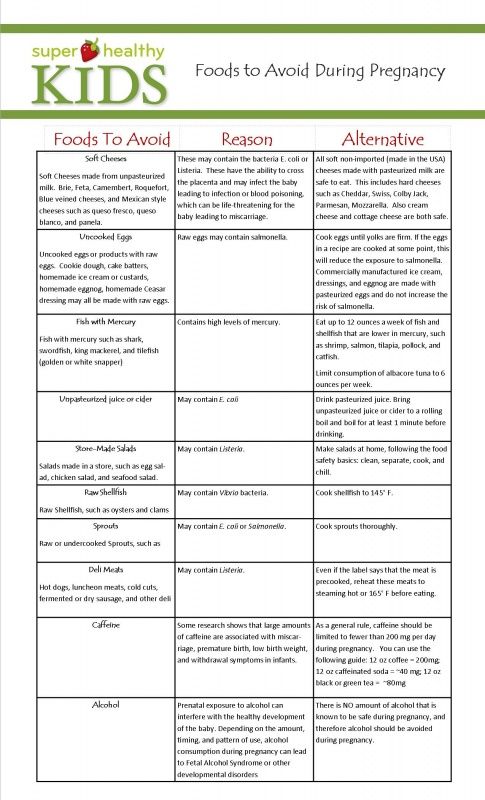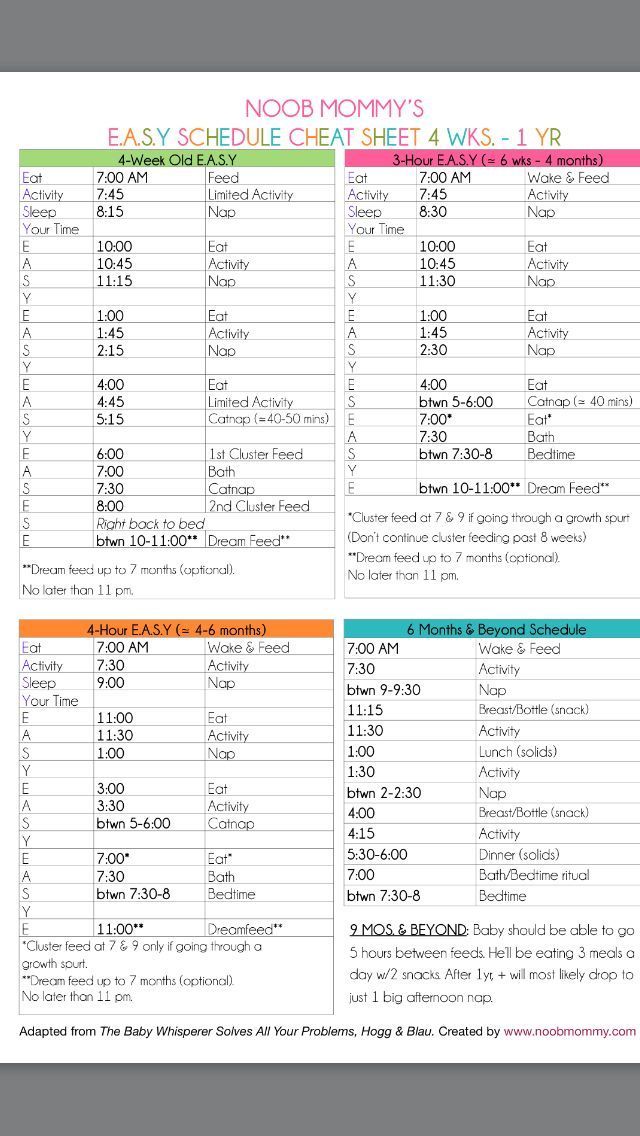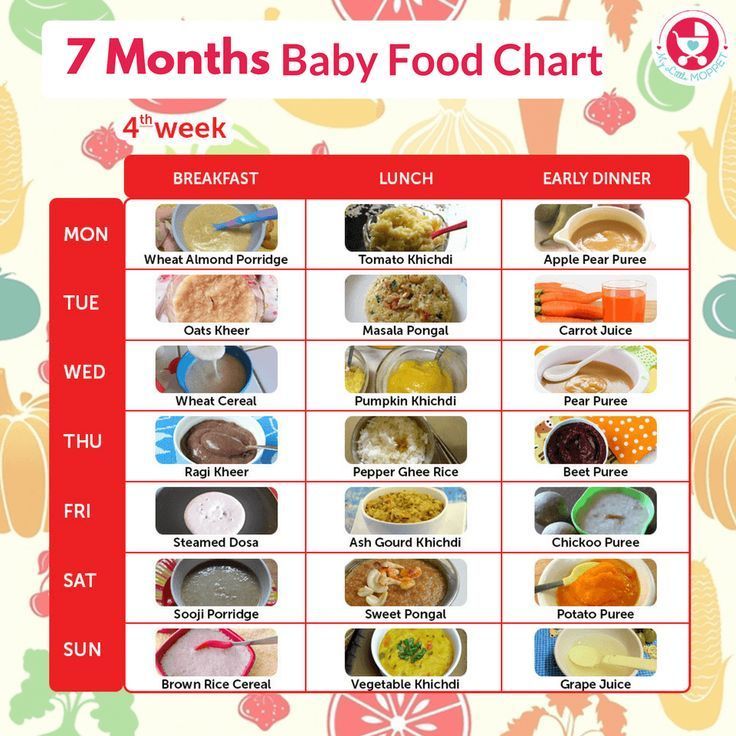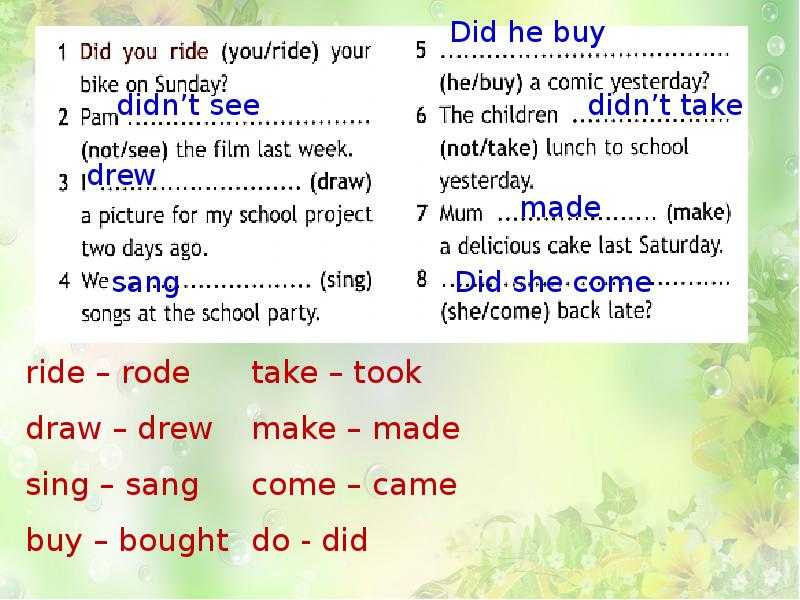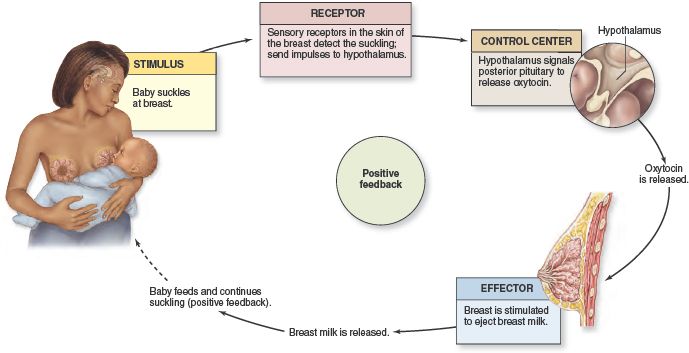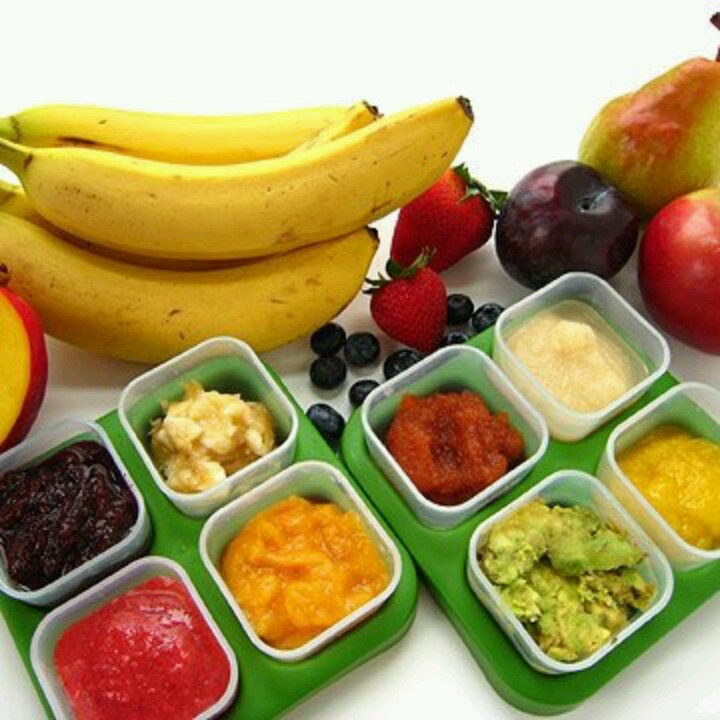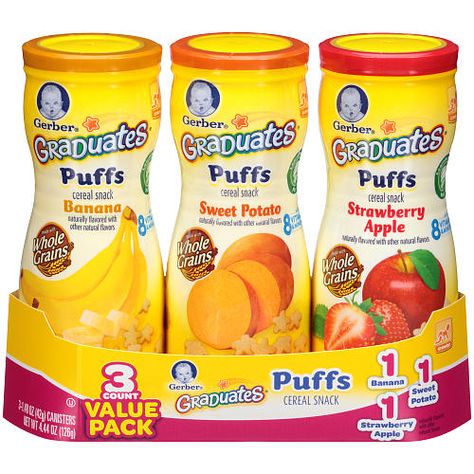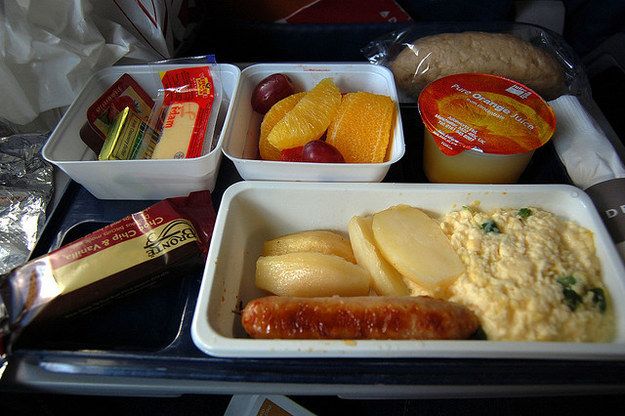Foods babies should avoid
Foods to avoid giving babies and young children
Salt
Babies should not eat much salt, as it's not good for their kidneys.
Do not add salt to your baby's food or cooking water, and do not use stock cubes or gravy, as they're often high in salt.
Remember this when you're cooking for the family if you plan to give the same food to your baby.
Avoid salty foods like:
- bacon
- sausages
- chips with added salt
- crackers
- crisps
- ready meals
- takeaways
Sugar
Your baby does not need sugar.
By avoiding sugary snacks and drinks (including fruit juice and other fruit drinks), you'll help prevent tooth decay.
Saturated fat
Do not give your child too many foods that are high in saturated fat, such as crisps, biscuits and cakes.
Checking the nutrition labels can help you choose foods that are lower in saturated fat.
See more on food labels.
Honey
Occasionally, honey contains bacteria that can produce toxins in a baby's intestines, leading to infant botulism, which is a very serious illness.
Do not give your child honey until they're over 1 year old. Honey is a sugar, so avoiding it will also help prevent tooth decay.
Whole nuts and peanuts
Whole nuts and peanuts should not be given to children under 5 years old, as they can choke on them.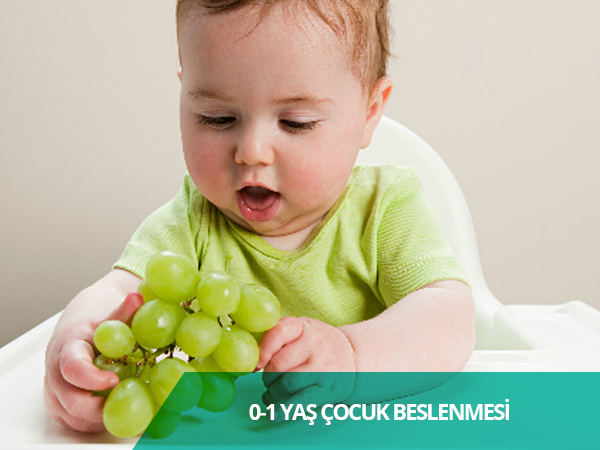
You can give your baby nuts and peanuts from around 6 months old, as long as they're crushed, ground or a smooth nut or peanut butter.
If there's a history of food allergies or other allergies in your family, talk to your GP or health visitor before introducing nuts and peanuts.
See more on food allergies in babies and young children.
Some cheeses
Cheese can form part of a healthy, balanced diet for babies and young children, and provides calcium, protein and vitamins.
Babies can eat pasteurised full-fat cheese from 6 months old. This includes hard cheeses, such as mild cheddar cheese, cottage cheese and cream cheese.
Babies and young children should not eat mould-ripened soft cheeses, such as brie or camembert, or ripened goats' milk cheese and soft blue-veined cheese, such as roquefort.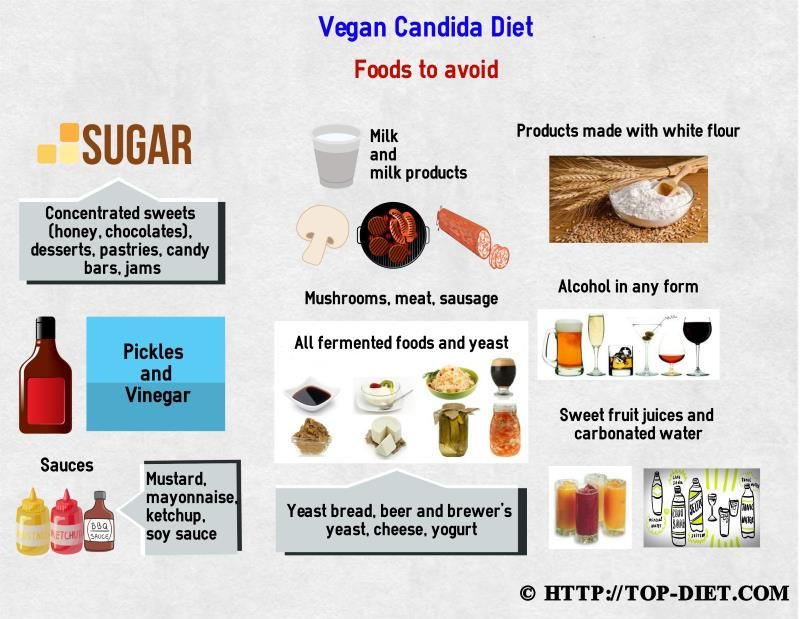 There's a higher risk that these cheeses might carry a bacteria called listeria.
There's a higher risk that these cheeses might carry a bacteria called listeria.
Many cheeses are made from unpasteurised milk. It's better to avoid these because of the risk of listeria.
You can check labels on cheeses to make sure they're made from pasteurised milk.
But these cheeses can be used as part of a cooked recipe as listeria is killed by cooking. Baked brie, for example, is a safer option.
Raw and lightly cooked eggs
Babies can have eggs from around 6 months.
If the eggs are hens' eggs and they have a red lion stamped on them, or you see a red lion with the words "British Lion Quality" on the box, it's fine for your baby to have them raw (for example, in homemade mayonnaise) or lightly cooked.
Hens' eggs that do not have the red lion mark should be cooked until both the white and yolk are solid.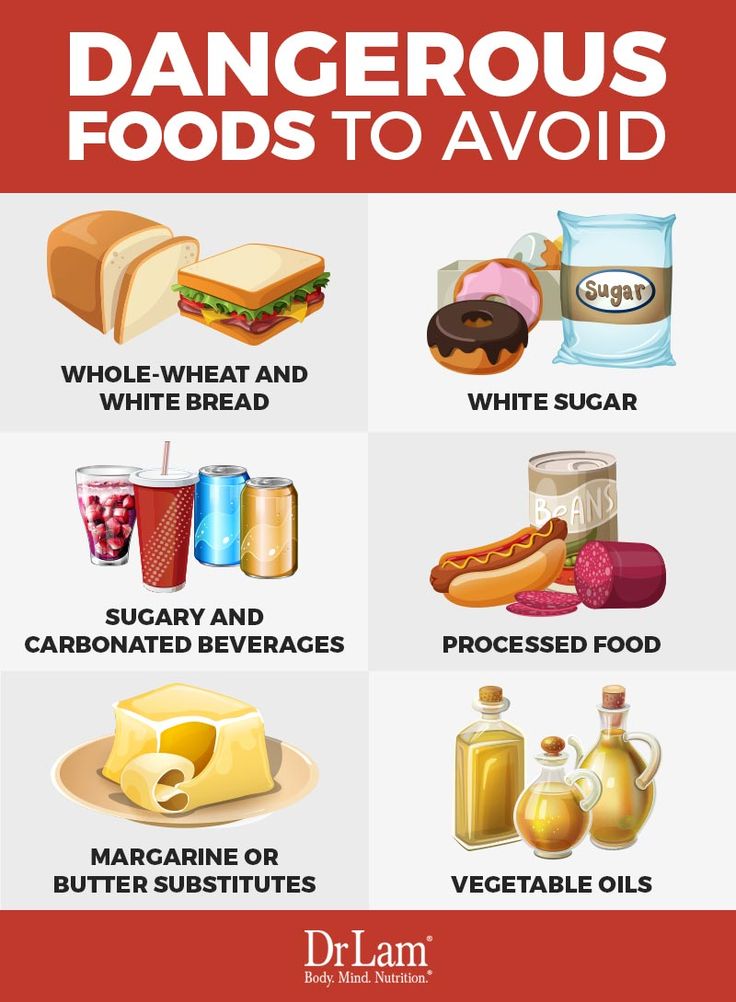 So should duck, goose or quail eggs.
So should duck, goose or quail eggs.
Avoid raw eggs, including uncooked cake mixture, homemade ice creams, homemade mayonnaise, or desserts that contain uncooked egg that you cannot confirm are red lion stamped.
Rice drinks
Children under 5 years old should not have rice drinks as a substitute for breast milk or infant formula (or cows' milk after 1 year old) as they may contain too much arsenic.
Arsenic is found naturally in the environment and can find its way into our food and water.
Rice tends to take up more arsenic than other grains, but this does not mean that you or your baby cannot eat rice.
In the UK, there are maximum levels of inorganic arsenic allowed in rice and rice products, and even stricter levels are set for foods intended for young children.
Do not worry if your child has already had rice drinks.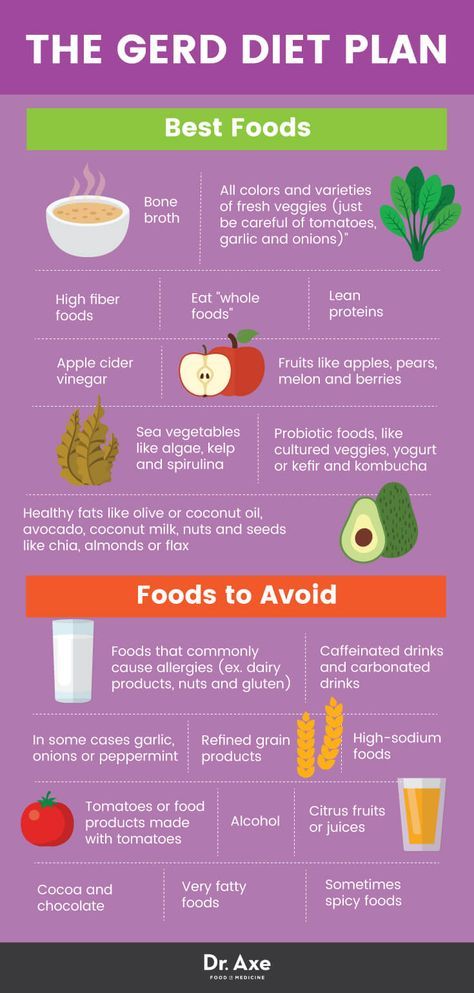 There's no immediate risk to them, but it's best to switch to a different kind of milk.
There's no immediate risk to them, but it's best to switch to a different kind of milk.
Raw jelly cubes
Raw jelly cubes can be a choking hazard for babies and young children.
If you're making jelly from raw jelly cubes, make sure you always follow the manufacturers' instructions.
Raw shellfish
Raw or lightly cooked shellfish, such as mussels, clams and oysters, can increase the risk of food poisoning, so it's best not to give it to babies.
Shark, swordfish and marlin
Do not give your baby shark, swordfish or marlin. The amount of mercury in these fish can affect the development of a baby's nervous system.
Further information
For more information and advice about babies and food, see:
- food allergies in babies and young children
- your baby's first solid foods
- baby and toddler meal ideas
5 Foods That Babies Should Avoid
As appealing as it is to include new foods in your little one’s diet when you start solids, some things should stay away from the table for the first year.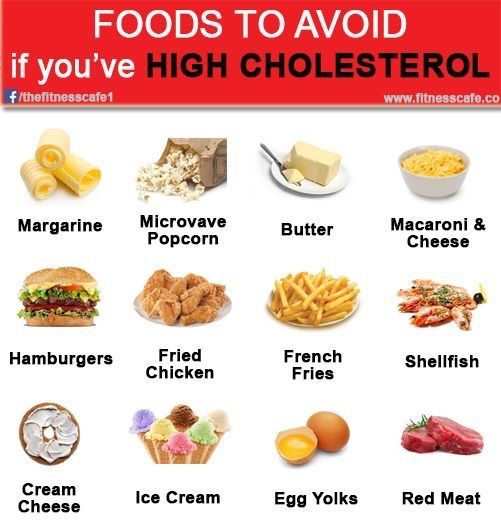 Few foods act as a choking hazard to new eaters, while others are not suited for the little ones. Here’s a quick guide to the 5 foods that babies should avoid, with instructions for when they are harmless to include in their diet.
Few foods act as a choking hazard to new eaters, while others are not suited for the little ones. Here’s a quick guide to the 5 foods that babies should avoid, with instructions for when they are harmless to include in their diet.
Honey (or foods containing honey) is off-limits but is one of the lesser-known foods that babies should avoid. This is because it may comprise the bacteria Clostridium Botulinum’s spores. Although simply harmless to grown-ups, these spores can cause infant botulism in infants under one year of age. This severe but seldom deadly sickness might cause constipation, reduced sucking, bad appetite, laziness, and even pneumonitis and dehydration. So, it might be best to wait till the baby’s first birthday to serve your little honey a few drops of honey.
Cow’s MilkAs great it is for a big body, babies under one year should stay away from cow’s milk as it is hard for infants to digest.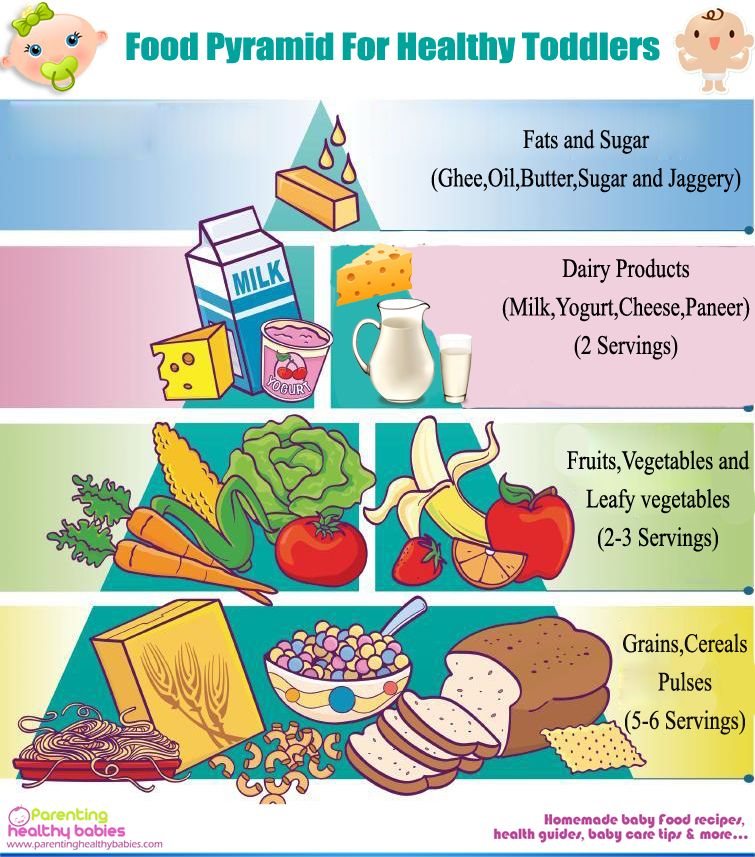 Babies need nutrients like iron and vitamin E to grow and develop during the first year. These are not present in cow’s milk. This is why breast or formula is the most suitable milk source.
Babies need nutrients like iron and vitamin E to grow and develop during the first year. These are not present in cow’s milk. This is why breast or formula is the most suitable milk source.
Baby taste buds possess an innate inclination for sugar, yet they are also more open at this age to different flavors. They could be sharp, tangy, tart, or sour, but your baby will take to them only if you introduce them.
There’s absolutely no need to ban naturally sugary baby preferences like bananas as they serve up the desired nutrients. Make sure to avoid sweetening everything the baby eats with fruit as you’re developing your baby’s flavor foundations. This can also lead to baby bottle tooth decay. You might want to keep sweet treats off the table, at least till the time your baby is one. Remember, especially chocolates (because it contains caffeine) and hard candies!
Unpasteurized FoodsThis may seem like stating the obvious, but some parents may not realize that anything unpasteurized is one of the foods that babies should avoid.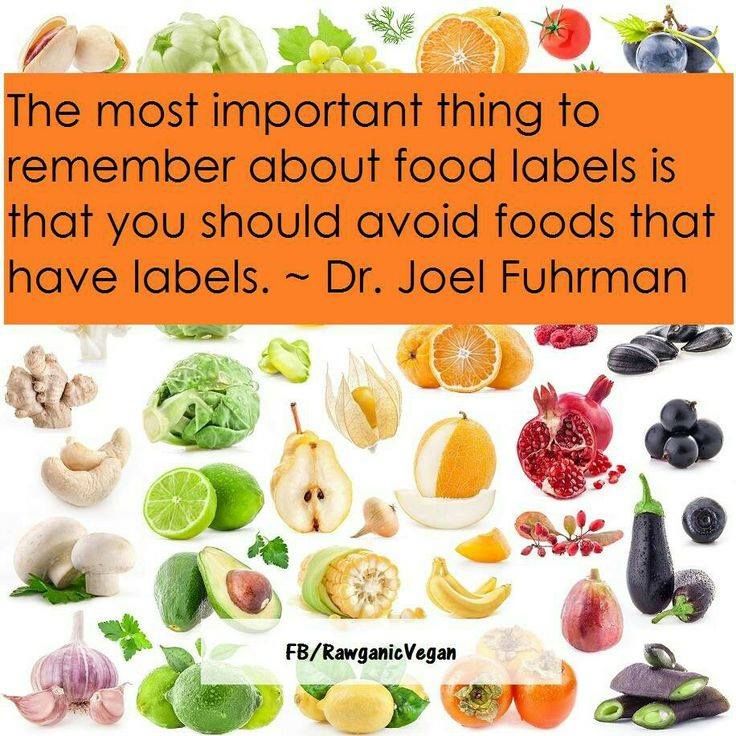 You should never serve your child raw or uncooked dairy products and meat, alongside cider, juice, etc. They can carry dangerous bacteria, ultimately causing life-threatening diseases in infants and toddlers.
You should never serve your child raw or uncooked dairy products and meat, alongside cider, juice, etc. They can carry dangerous bacteria, ultimately causing life-threatening diseases in infants and toddlers.
Whole grains are generously high in fiber, which rolls up their sleeves to keep the blood sugar steady. So remember to keep the refined grains like white bread away from the list and choose 100 percent whole grain products like pasta and cereal at the departmental store.
Starting this practice early and making it a habit will encourage your little one to make more intelligent food choices later in life.
Conclusion
Due to a choking danger, make sure you avoid giving your kid foods that won’t melt in the mouth, is difficult to mash with the gums, or are easily sucked by the windpipe. These could include uncooked raisins, whole grapes, chunks of meat or poultry, popcorn, chewing gum, etc.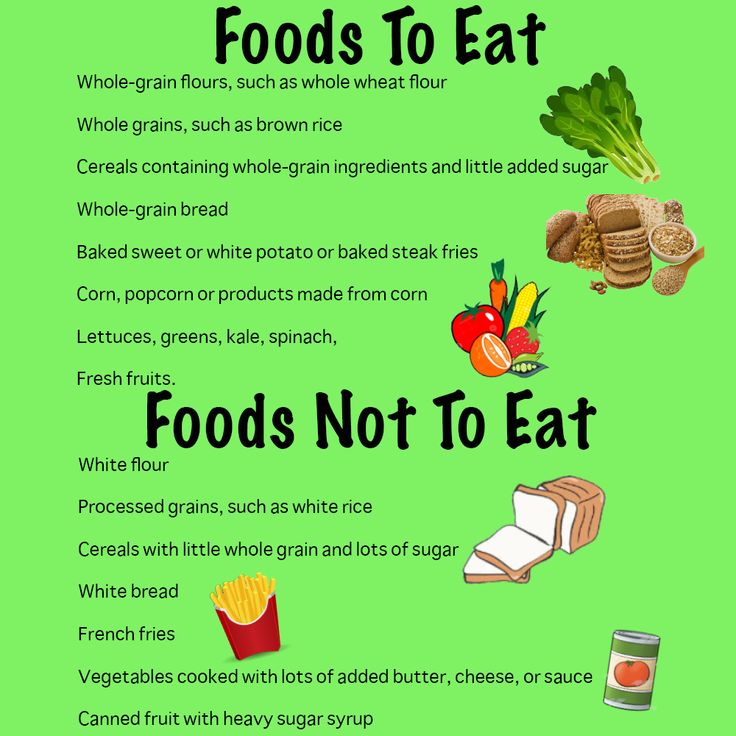 Also, withdraw whole nuts because they can cause a choking risk before the age of four. Alternatively, begin with smooth nut spreads, cheese, and butter. If you’re still worried about the foods babies should avoid, ensure you speak with your pediatrician. You can also keep track of their diet with ImmunifyMe‘s nutrition planner on the app.
Also, withdraw whole nuts because they can cause a choking risk before the age of four. Alternatively, begin with smooth nut spreads, cheese, and butter. If you’re still worried about the foods babies should avoid, ensure you speak with your pediatrician. You can also keep track of their diet with ImmunifyMe‘s nutrition planner on the app.
FAQs On Foods That Babies Should Avoid
What Is The Most Dangerous Food For Kids?
Any foods that can be choking hazards for kids are dangerous foods for them. These include whole grapes, cherries, nuts, popcorn, cheese cubes and chewing gum.
What Should You Not Give To Kids?
Kids should not have sugar in excess as it leads to tooth decay and an alteration in their taste palette. They should also avoid hard, gooey or sticky candy, peanuts and chunks of peanut butter. Lastly, choking hazards and foods they’re allergic to need to be kept away from children.
What To Do If A Child Is Choking On Popcorn?
If a child is choking, you must perform the Heimlich maneuver on them – stand behind them, clasp your fists between the navel and below the bottom of the breastbone.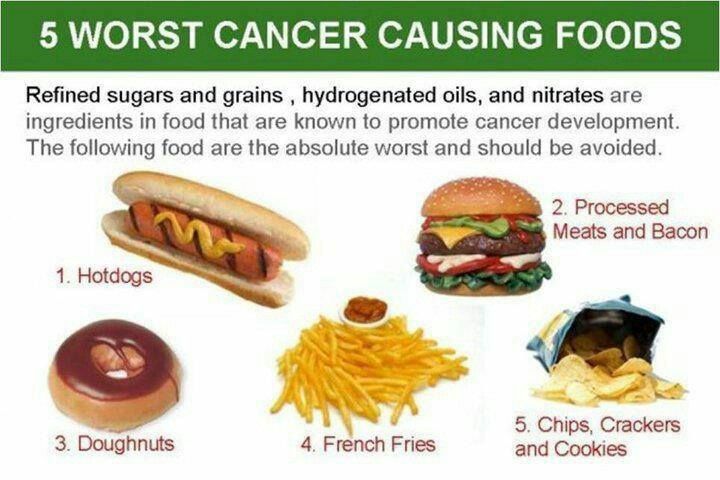 Give quick thrusts inward and upward until the airway is clear or they become unconscious. If the child is a toddler, lay them on the floor and give them 5 rapid compressions over the lower third of the breastbone, but only with two fingers. Keep alternating between back and chest blows.
Give quick thrusts inward and upward until the airway is clear or they become unconscious. If the child is a toddler, lay them on the floor and give them 5 rapid compressions over the lower third of the breastbone, but only with two fingers. Keep alternating between back and chest blows.
7 foods that are undesirable to give to children under one year old
Of course, modern mothers know that sausages should not be given to babies, soda and cream cakes. What else can not eat children under one year old? We made a list of 7 less obvious foods.
1. Salt
Excess salt in the diet is harmful to the baby's kidneys and can lead to swelling and dehydration. Of course, a lack of salt is also not useful, but in real life, with a normal diet, it practically does not occur: salt is contained in sufficient quantities in most foods, and there is no need to add salt on purpose. And if for us, adults, baby purees and cereals without salt and sugar seem tasteless and disgusting, don’t worry, for a baby, the situation is completely different.
The taste perception of young children is not yet spoiled by excessively sweet and salty foods, flavors and flavor enhancers. If your child refuses mashed broccoli, then most likely he just does not like the taste and texture of broccoli, and not at all the lack of salt.
2. Sugar
Everyone knows the dangers of excess sugar - dental problems, obesity, associated cardiovascular diseases and the risk of developing diabetes. However, it can be very difficult to refuse a cookie or candy to a child familiar with the sweet taste, and tears are usually inevitable. What to do?
The secret is simple - introduce foods with added sugar into your baby's diet as late as possible, at the earliest in the year, although it is better to wait until two years. The National Nutrition Optimization Program for Children aged 1 to 3 years recommends limiting sugar in the diet of toddlers 1 to 3 years of age to 25-30 grams per day, taking into account the sugar found in special baby foods, juices, yogurts, etc.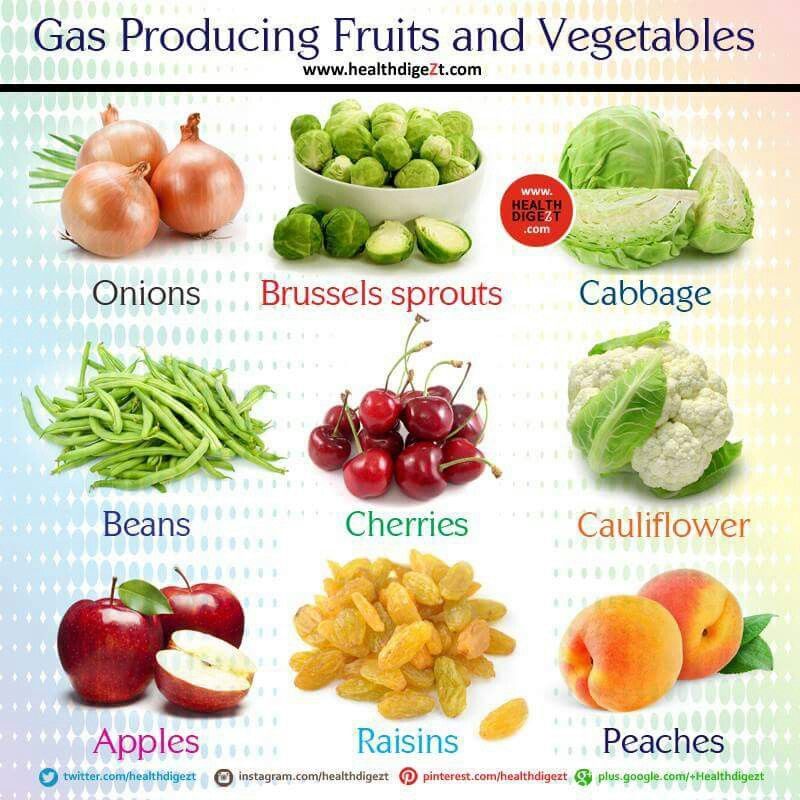
3. Honey
It would seem that honey is a wonderful and healthy alternative to sugar, so why is it not recommended for babies under one year old? In fact, the reasons some. First, honey can contain spores bacteria Clostridium botulinum. The immune system of adults and children older people can easily cope with them, but in babies they can cause a deadly disease called infantile botulism.
Secondly, honey is the strongest allergen, so it is better to postpone acquaintance with it until a later age.
4. Fruit juices and drinks
American Academy of Pediatrics (AAP) released in 2017 New recommendations for adequate intake of fruit juices in infants, young children and adolescents who begin with advice to completely avoid fruit juice for feeding infants life. According to AAP, excessive juice consumption can lead to diarrhea, overeating or, conversely, malnutrition, as well as to occurrence of dental caries*. At the same time, babies can and should be offered Whole fruit, mashed or pureed.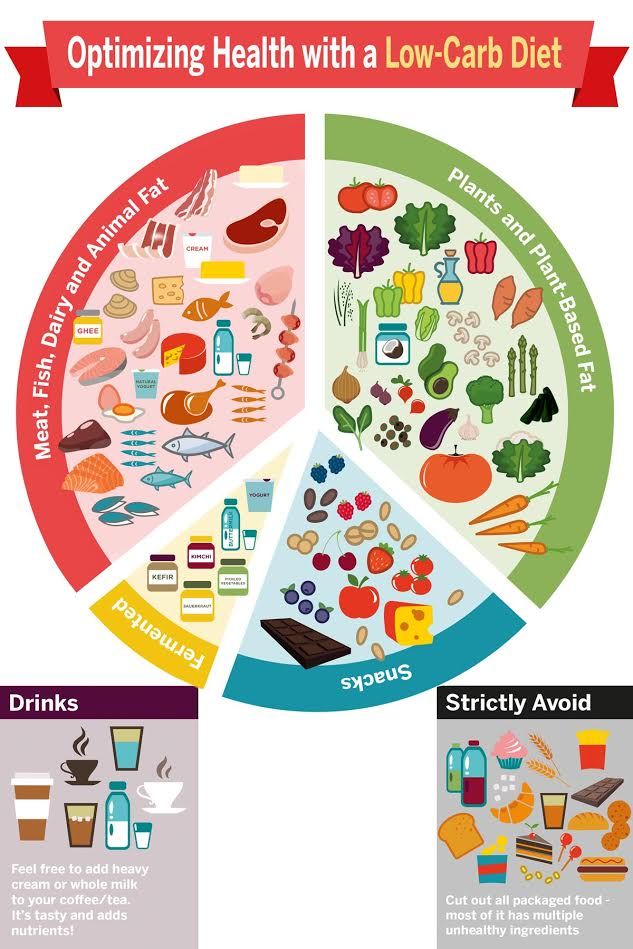
A various fruit drinks and nectars in addition to natural sugar from fruits often contain added sugar, which makes them perfectly unsuitable for feeding babies up to a year.
Breeding of juices and nectars with water does not completely solve the problem, since it does not reduce dental risks. If your child refuses to drink water, try compotes and fruit or herbal teas.
5. Foods that are easy to choke on
The danger of a product to children is determined by several characteristics: consistency, shape, and size. Most often babies gagging slippery, round, sticky, fibrous and hard products.
The most dangerous are all round and large enough to block the airways: lozenges, grapes, cherry tomatoes, nuts**. Not far behind in sad dangerous food rating other candies (especially sticky ones), fish bones and meat and, in fact, the meat itself ***.
Remember that theoretically a child can choke on any food, so never leave your baby unsupervised eating.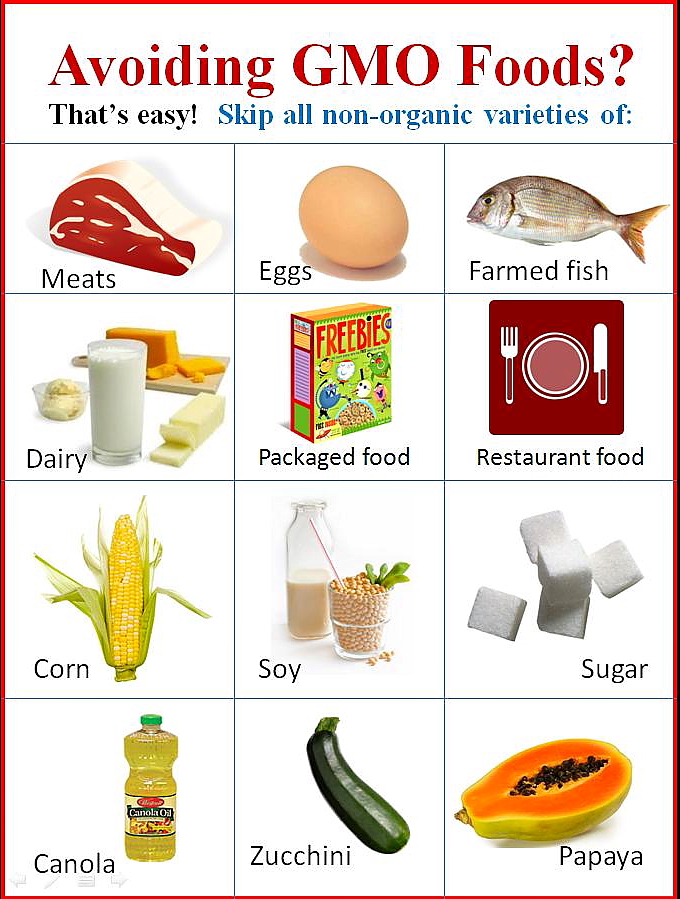
6. Egg white
Have you ever wondered why in all complementary feeding schemes is it the yolk, not the whole egg? Nothing surprising: egg protein is one of the strongest allergens. Up to a year is better limit the baby to only the yolk, and introduce the protein a little later.
Only make sure the eggs are thoroughly cooked. Raw and half-raw eggs may contain a bacterium that causes salmonellosis, a disease deadly for young children.
7. Cow and goat milk
Surprised? Whole cow's milk is the main cause of allergies in children under one year old. In addition, it contains a large amount of lactose, milk sugar, which some babies have difficulty digesting due to the fact that their gastrointestinal tract is not yet sufficiently developed. There are studies linking the early introduction of animal milk into the diet as a substitute for mother's milk or infant formula with an increased risk of iron deficiency anemia and type 1 diabetes.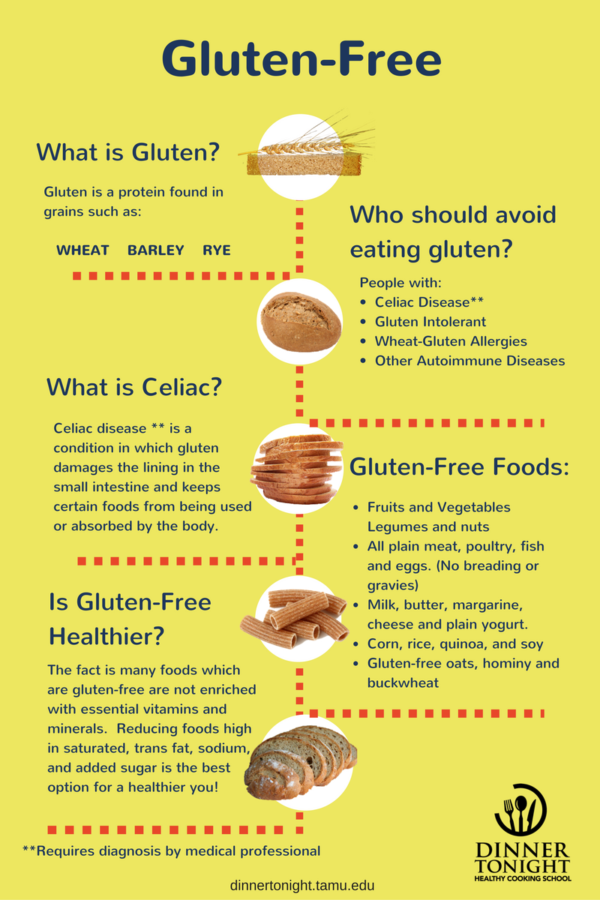 ****
****
Goat milk is actually not much different from cow milk, goat and cow are evolutionarily close, goat milk proteins are very similar in structure to cow proteins, and almost as often cause allergies.
It is advisable to introduce cow's milk into the diet of a child not earlier than 1 year. Interestingly, this rule does not apply to special children's fermented milk products, they are easier to digest and useful for babies.
When using any materials from the site nutriclub.ru, a link to the site is required.
© Nutriclub, 2020
You will also be interested
- Nutriclub - healthy nutrition and child development
- 0-12 months
- Lure
- unwanted foods for children
Different food groups in the diet of infants and young children
Vegetables and fruits
Vegetables and fruits are an extremely important source of vitamins and minerals, so they must be on the baby's menu.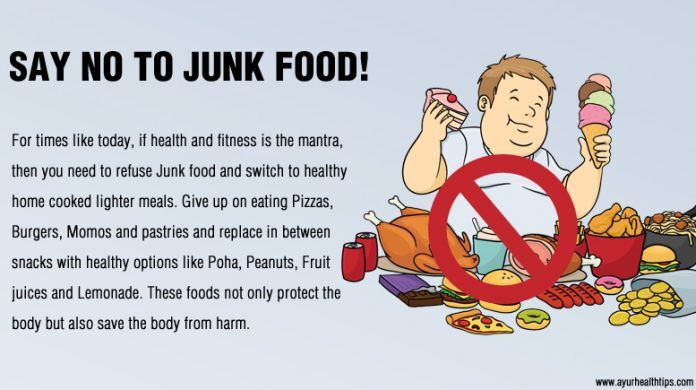 Vegetables are great as first foods. For example, carrots contain natural sugar and the sweet taste of this vegetable is very popular with children, but at the same time, carrots contain a high amount of beta-carotene and other essential nutrients. Beans and other legumes are high in folate, but because of so-called anti-nutrients and the danger of choking, they are not suitable as first foods. If you still give them to children, then in a limited amount and in pureed form.
Vegetables are great as first foods. For example, carrots contain natural sugar and the sweet taste of this vegetable is very popular with children, but at the same time, carrots contain a high amount of beta-carotene and other essential nutrients. Beans and other legumes are high in folate, but because of so-called anti-nutrients and the danger of choking, they are not suitable as first foods. If you still give them to children, then in a limited amount and in pureed form.
Fresh and firm vegetables are difficult for the child to eat. Vegetables and fruits can be served steamed, baked, pounded or chopped right before eating. In fresh form, the child can be given, for example, bananas, mangoes or other fairly soft fruits.
In addition, vegetables, fruits and berries can be mashed, both fresh and pre-boiled. To ensure food safety, all pre-frozen foods must be thoroughly reheated before eating. Individual vegetables and fruits contain very different amounts of nutrients, so the child's menu should contain different types of fruits.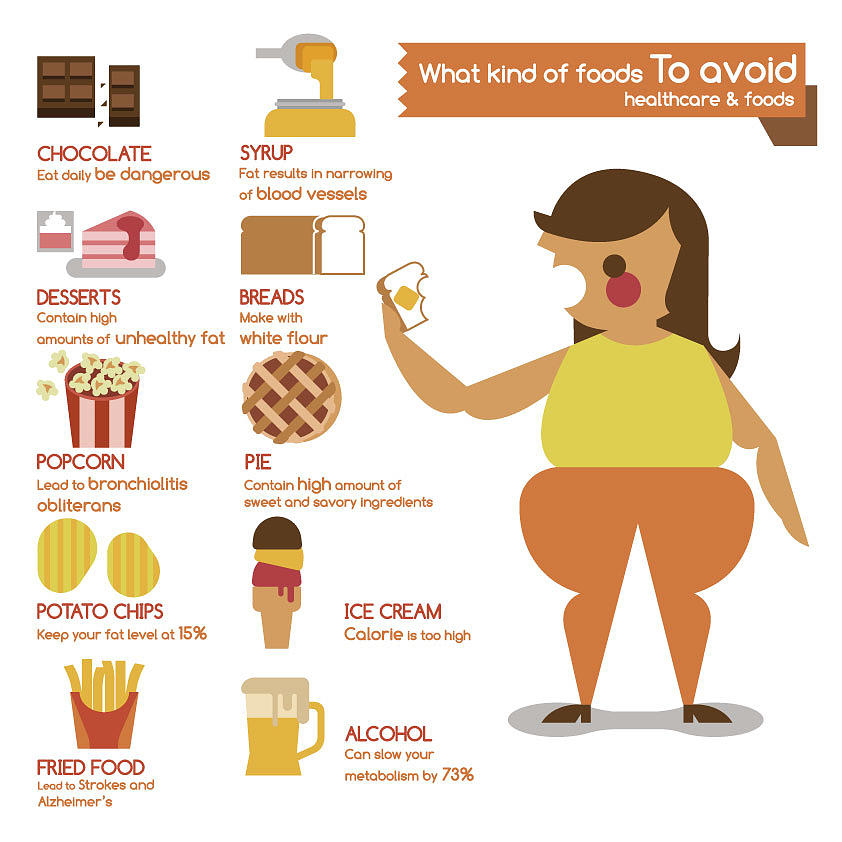
Since babies need vegetables, it is worth increasing their number in the diet of the rest of the family. Vegetables can be "hidden" in almost every dish. Fresh tomatoes and carrots, for example, are perfect with meat sauces and simple pastas.
Cereals, potatoes and bread
Depending on the country and culture, potatoes, rice, baked goods and pasta form an essential part of the daily menu. They are also necessary for babies, but compared to the diet of an adult, a children's table should contain significantly less of these products. Vegetables and fruits are more necessary for babies. Grains are still rich in many nutrients, such as B vitamins, fiber and minerals. We recommend that you try to offer your child, including, and not the most common cereals, such as quinoa or millet.
Whole grains contain anti-nutrients that interfere with the absorption of nutrients. In order to absorb the necessary nutrients in sufficient quantities, children should not be given large amounts of whole grains.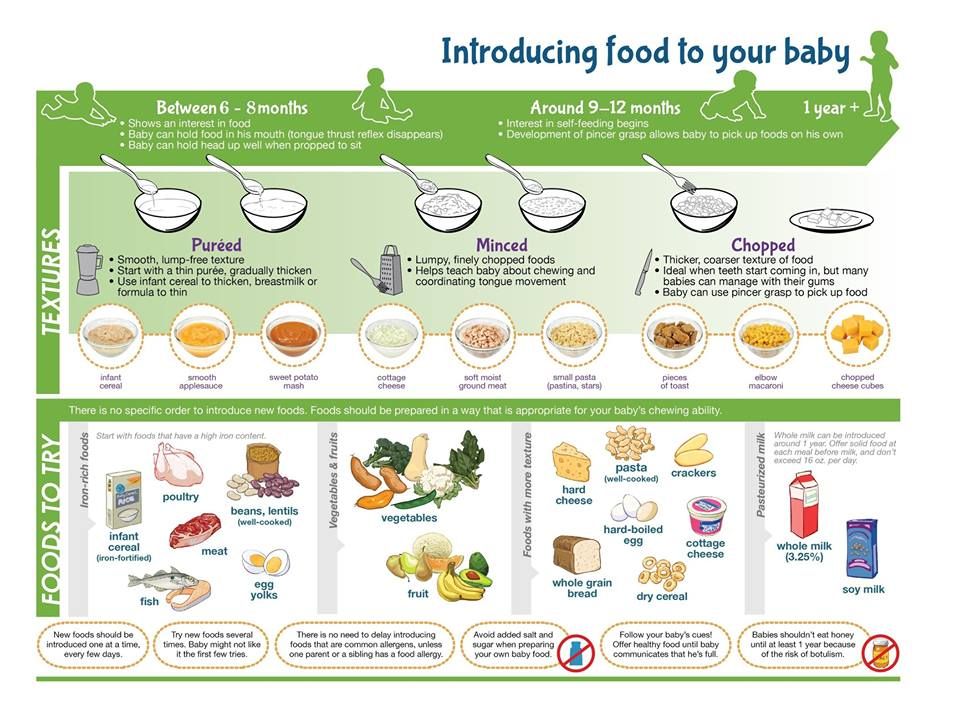
Although milk is a good source of calcium, it is recommended to use milk and water in a one-to-one ratio when making porridge for babies, as cow's milk interferes with the absorption of iron. To prepare cereals for children under one year old, you can use a partially adapted milk formula, and if the child receives breast milk in sufficient quantities, then a partially adapted mixture in half with water. NB! Milk mixtures cannot be boiled, first you need to boil the porridge in water and add the mixture only at the end of cooking. To increase the content of vitamins in porridge, you can add grated berries or fruits to it.
Milk and dairy products
During the first six months of life, the child should be fed exclusively with breast milk. Children over 6 months of age can drink additional pure water if they are thirsty. Upon reaching the age of six months, when, in addition to breast milk, the child is able to digest more complex foods, it is allowed to prepare complementary foods (for example, porridge) in addition to breast milk, you can add a small amount of pure or mixed with water cow's milk.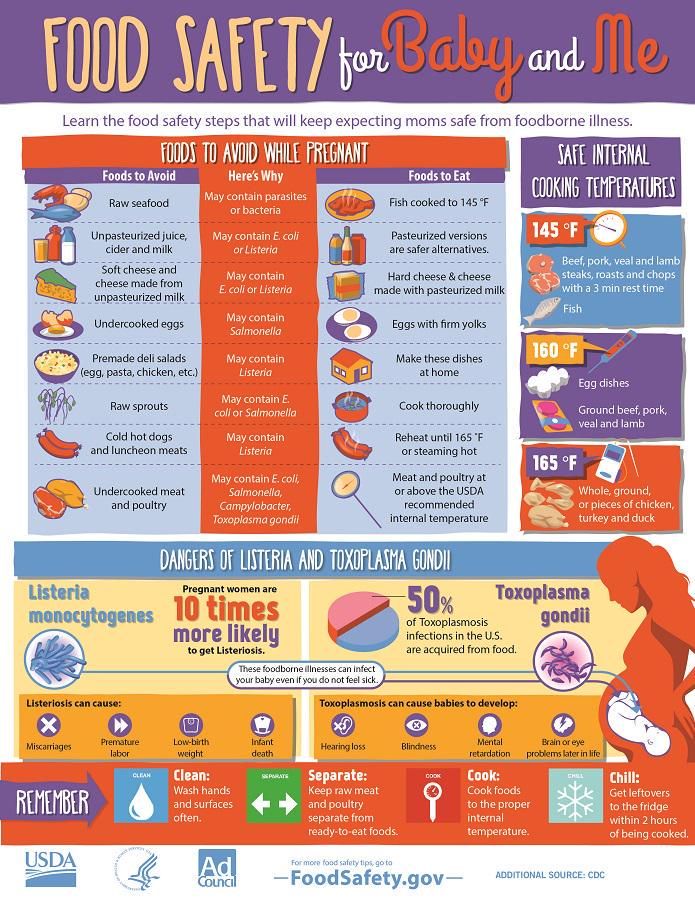 Dairy products are a good source of calcium and vitamin B 12 .
Dairy products are a good source of calcium and vitamin B 12 .
Added fat
Breast milk is very rich in fat, so the baby is used to getting most of its energy from fat. During the period when the baby begins to get acquainted with new foods, most of the energy should also come from fat, at least during the first two years. With continued breastfeeding, most of the baby's fat needs are covered by breast milk. In the event that the child no longer receives a breast, you can add butter or vegetable oil to his food (for example, in porridge or vegetable puree), at the rate of approximately 5 grams of fat per 100 grams of food.
Fats are made up of a variety of fatty acids that are vital for a child's rapidly developing brain and nervous system. The baby receives most of them mainly from breast milk, and later from fish, vegetable oils, for example, from linseed or rapeseed.
Nuts and seeds are also a good source of unsaturated fatty acids, but during the first year of life their intake should be severely limited as they are also high in phytates.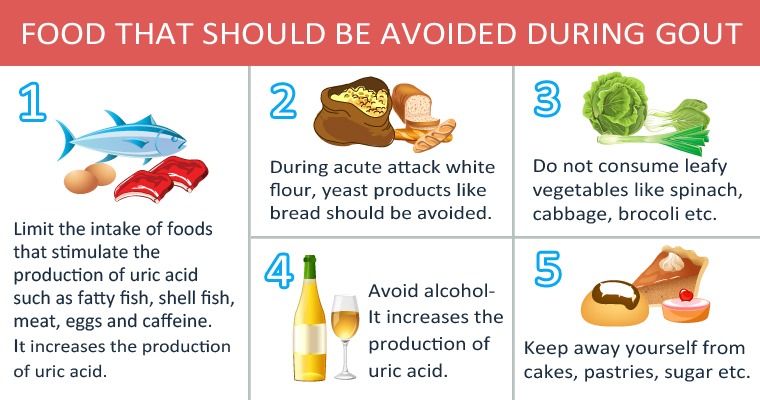 These are substances that interfere with the absorption of other essential nutrients. To reduce the amount of phytates, nuts should be soaked for at least 8 hours before being added to infant food. It is worth remembering that eating nuts in general can be dangerous for the baby. They can be inhaled and cause suffocation!
These are substances that interfere with the absorption of other essential nutrients. To reduce the amount of phytates, nuts should be soaked for at least 8 hours before being added to infant food. It is worth remembering that eating nuts in general can be dangerous for the baby. They can be inhaled and cause suffocation!
Do not give your child deep-fried foods such as french fries or donuts. Store-bought cookies are also high in fat and are not suitable for a baby to eat.
Meat products, chicken, fish, eggs
Compared to older children and adults, protein foods are much more limited in young children. Therefore, you should not worry too much about whether the child is getting enough protein. A normal and balanced diet provides this need.
However, protein-rich food contains a lot of other important nutrients, so you should not limit your child's diet, it is necessary to provide the child with a varied and rich menu.
Red meat is high in iron and fish is high in essential fatty acids. When cooking for a baby, the meat needs to be cooked much longer so that it becomes as soft as possible, and it is easier to grind it into a puree.
Fish is a good and nutritious part of many dishes. Be sure to make sure that all bones are removed, even the smallest ones.
A small amount of boiled egg can be added to any dish offered to the baby. The egg can be cut into small pieces and let the baby try to eat it on his own, with his hands. In addition, the egg can be introduced into the child's menu as part of, for example, casseroles.
Human cells need sodium. It is a mineral found mainly in salt, so people should get some of it from their diet. A person receives a sufficient amount of sodium even when we do not salt our food. Baby food should not be salted at all.
Sugary foods and snacks such as sodas, fruit drinks, sweets, ice cream, cookies, cakes and other sweets do not contain vitamins and minerals, or if they do, they contain negligible amounts.